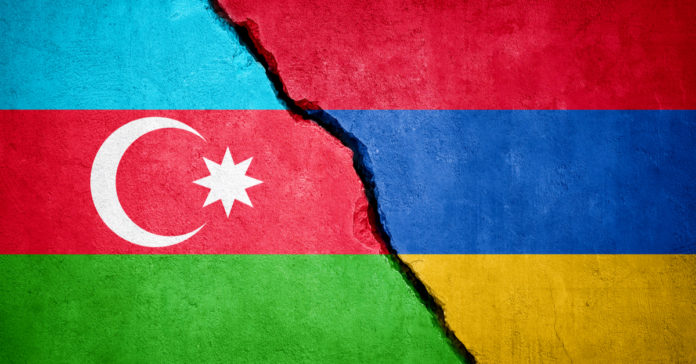Over the past few days we’ve seen heavy fighting between majority-Muslim Azerbaijan and its Christian neighbour Armenia. These are two relatively small and little-known nations so what’s going on and does it matter?
Since Sunday hostilities have been raging between Armenian and Azerbaijani forces around the contested territory of Nagorno-Karabakh in the southern Caucasus.
So far there are more than 100 confirmed deaths among civilians and Armenian combatants. Azerbaijan does not release data on its military losses, but these can be assumed to be at least as high.
The fighting appears to be driven by an attempt by Azerbaijani forces to recapture swathes of territories occupied by Armenian forces in the Karabakh war after the Soviet Union collapsed.
Though it is part of Azerbaijan, Nagorno-Karabakh is run by seperatist Armenians supported by the Armenian government. They have sought for decades to split from Azerbaijan and become part of Armenia, though unsuccessfully.
Hundreds of thousands of ethnic Azeris were displaced from these areas in 1992-4.
Populated areas within the contested territory of Nagorno-Karabakh have been hit by missile strikes and bombardments for the first time since the 1990s. Civilian targets in Armenia and in Azerbaijan have also been hit.
Subscribe to our newsletter and stay updated on the latest news and updates from around the Muslim world!
Turkey has traditionally provided moral and diplomatic support to its fellow Turkic nation and key geo-strategic partner Azerbaijan.
Since the fighting started on Sunday, Turkey has declared its unconditional support to Azerbaijan and appears to be lending Azerbaijani various kinds of military capability.
Meanwhile, Turkey has strained relations with Armenia, rooted in Armenian genocide accusations against the Ottoman empire. The two countries have no official diplomatic relations.
On the other hand, Moscow provides Armenia with security guarantees but these do not extend to the combat zone in Nagorno-Karabakh, which is internationally recognised as part of Azerbaijan.
As long as combat is contained to contested territory in and around Nagorno-Karabakh, Moscow’s overt involvement remains unlikely. However, a longer conflict with increasing Turkish participation would threaten Russia’s dominance in an area it considers part of its sphere of influence.
So the longer that fighting goes on, the more likely it is that Russia and Turkey will face difficult choices over whether to become more involved.
Meanwhile, Iran shares its northern borders with Azerbaijan and Armenia.
While Azerbaijan has the same Shia religious leaning as Iran, it also has important trade ties with Yerevan and will not want to upset its political alliance with Russia.
Following Sunday’s clashes, Iran encouraged a halt to hostilities.


















